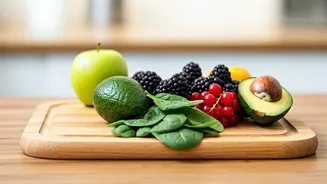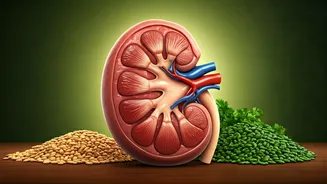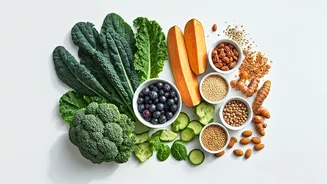Embrace Healthy Fats
Not all fats are created equal; some can significantly impact cholesterol levels. While saturated and trans fats are known to increase LDL cholesterol,
unsaturated fats found in foods like olive oil, sunflower oil, nuts, seeds, and avocados can help elevate HDL cholesterol, supporting overall cardiovascular health. Consider these tips for incorporating healthier fats into your diet: Replace butter and ghee with olive or mustard oil when cooking. Opt for cooking methods like steaming, grilling, or air-frying instead of deep-frying. Choose avocado or nut-based spreads over mayonnaise or butter. Even small adjustments in your diet can lead to noticeable improvements in cholesterol profiles over time.
Snack Smartly with
Nuts and seeds are packed with plant sterols and omega-3 fatty acids, which have been scientifically proven to reduce LDL cholesterol naturally. These tiny nutritional powerhouses can also boost HDL levels and support heart health. Here’s how you can incorporate them into your daily routine: Enjoy a small handful of almonds, walnuts, or pistachios each day. Add pumpkin seeds or sunflower seeds to your salads or breakfast cereals. Pair nuts with fruits for a satisfying snack that helps maintain stable blood sugar levels. Keep in mind that portion control is crucial, as nuts are calorie-dense. Overeating them could lead to weight gain, which is a risk factor for high cholesterol.
Load Up on Produce
Fruits and vegetables are naturally low in calories and rich in nutrients, containing plenty of soluble fiber, which assists in lowering LDL cholesterol levels. They also provide antioxidants, protecting your heart from oxidative stress and inflammation. For effective cholesterol management, focus on these choices: Fruits like apples, oranges, grapes, and berries are beneficial due to their pectin content. Vegetables such as spinach, carrots, okra, and broccoli support cardiovascular health. Key strategies include: Fill half your plate with vegetables at every meal. Include a piece of fruit with breakfast, lunch, or dessert. Blend vegetables into soups or smoothies if you find it hard to eat them raw. A diet rich in colorful produce not only lowers bad cholesterol but also enhances overall immunity and vitality.
Stay Active Daily
Physical activity is one of the most effective ways to manage cholesterol naturally. Regular exercise helps increase HDL cholesterol and lowers LDL, promoting better circulation and overall heart health. Here are ways to stay active without going to a gym: Take brisk walks around your home or neighborhood for 20–30 minutes daily. Engage in simple home workouts like yoga, skipping, or climbing stairs. Include household chores like gardening, sweeping, or mopping, which all count as physical activity. Consistency is vital. Even moderate daily movement can bring significant improvements in cholesterol levels over time. Beyond diet and exercise, other habits can influence cholesterol levels such as quitting smoking, limiting alcohol intake, managing stress and maintaining a healthy weight.












